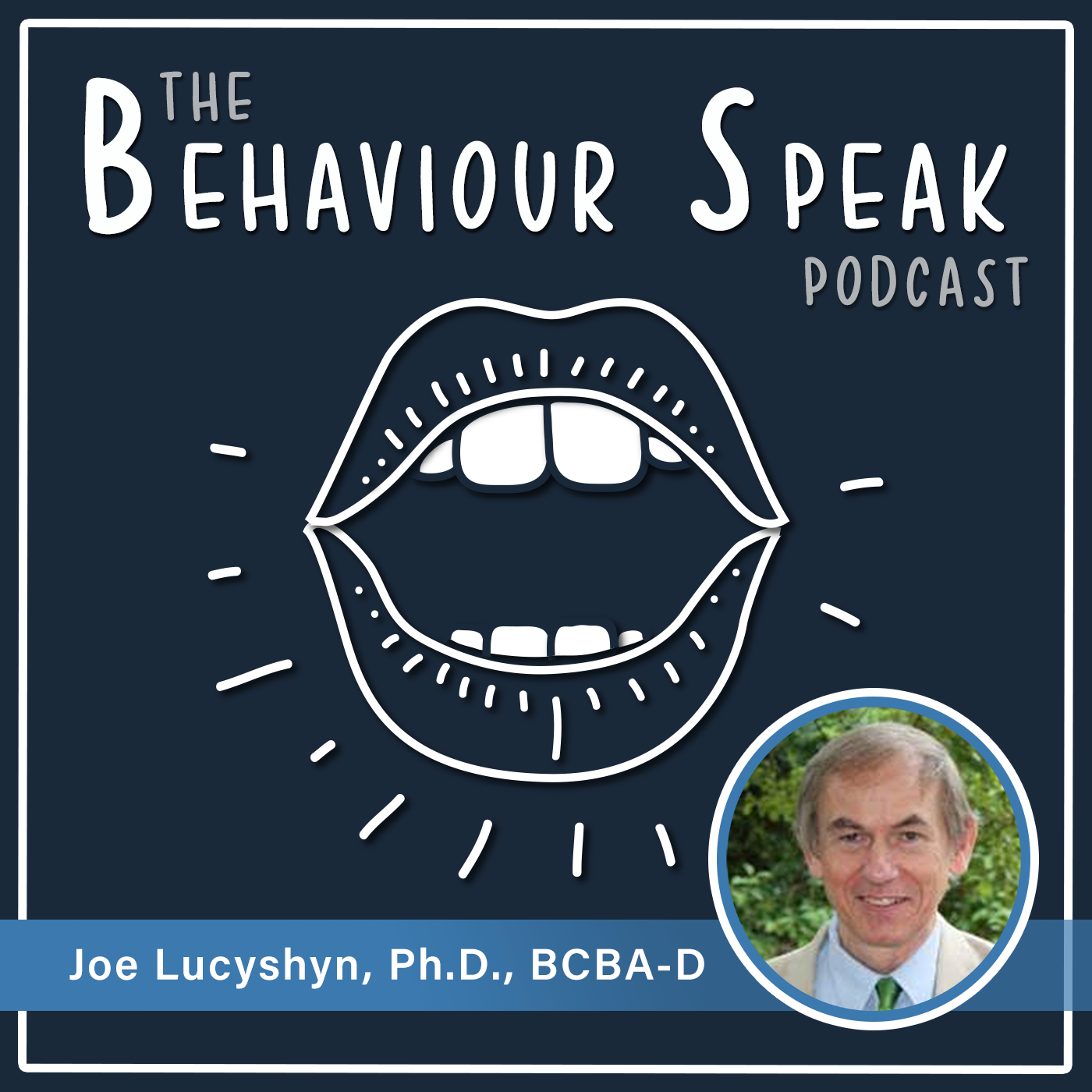Episode 44: Family Centred Positive Behaviour Support with Dr. Joseph Lucyshyn, Ph.D., BCBA-D (Part 2)
- Author
- Ben Reiman, M.A., BCBA, IBA
- Published
- Fri 02 Sep 2022
- Episode Link
- https://www.behaviourspeak.com/e/episode-44-family-centred-positive-behaviour-support-with-dr-joseph-lucyshyn-phd-bcba-d-part-2/
In this episode, I chat with one of the founders of Family-Centred Positive Behaviour Support, Dr. Joseph M. Lucysyhn, Ph.D., BCBA-D. Dr. Lucyshyn combines behaviour analysis, coercion theory, and ecocultural theory to develop long-term, sustainable interventions for families with autistic children.
Continuing Education Units (CEUs): https://cbiconsultants.com/shop
- BACB: 1.0 Ethics
- IBAO: 1.0 Ethics
- QABA: 1.0 Ethics
Show Notes:
- Carolyn Webster-Stratton: https://incredibleyears.com/team-view/carolyn-webster-stratton
Articles Referenced:
- Beaulieu, L., Addington, J., & Almeida, D. (2018). Behavior analysts' training and practices regarding cultural diversity: The case for culturally competent care. Behavior Analysis in Practice, 12(3), 557–575. https://doi.org/10.1007/s40617-018-00313-6
- Fawcett, S. B. (1991). Some values guiding community research and action. Journal of Applied Behavior Analysis, 24(4), 621–636. https://doi.org/10.1901/jaba.1991.24-621
- Kelly, E. M., Greeny, K., Rosenberg, N., & Schwartz, I. (2020). When rules are not enough: Developing principles to guide ethical conduct. Behavior Analysis in Practice, 14(2), 491–498. https://doi.org/10.1007/s40617-020-00515-x
- LeBlanc, L. A., Taylor, B. A., & Marchese, N. V. (2019). The training experiences of behavior analysts: Compassionate care and therapeutic relationships with caregivers. Behavior Analysis in Practice, 13(2), 387–393. https://doi.org/10.1007/s40617-019-00368-z
- Sue, Stanley, et al. (2009). “The case for cultural competency in psychotherapeutic interventions.” Annual Review of Psychology, 60, 525–48. https://doi:10.1146/annurev.psych.60.110707.163651
- Zayac, R. M., Van Stratton, J. E., Ratkos, T., Williams, M., Geiger, A., & Paulk, A. (2021). A preliminary assessment of the qualities and behaviors of exemplary practitioners: Perspectives from U.S.-based behavior analysts. Behavior Analysis in Practice, 14(2), 342–351. https://doi.org/10.1007/s40617-020-00522-y
